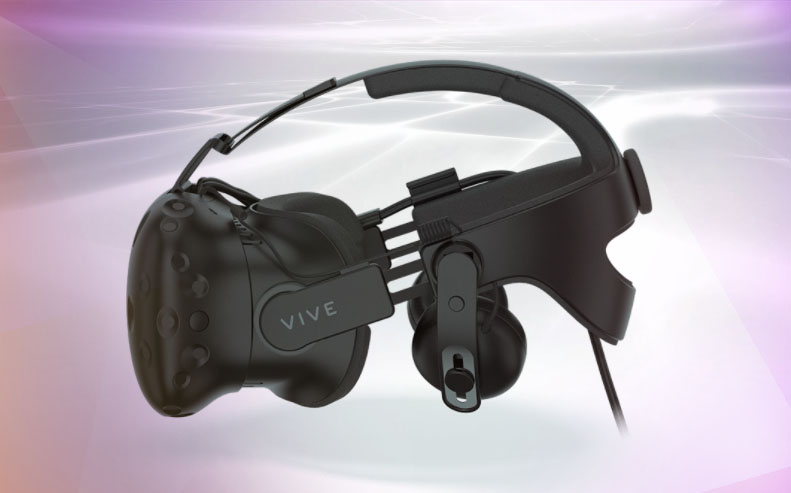While E3 has opened its doors wider to consumers for this summer’s annual Los Angeles trade show and Gamescom continues to attract over 340,000 gamers to Cologne, Germany every August, startup in-VR sees a unique opportunity to connect the public with brands and companies through virtual reality. The company is hosting the world’s first video game convention in virtual reality this December. While VR games will be part of the offerings, this virtual convention will feature games across all platforms, including mobile, console and PC.
“The video game industry is very early at adopting new technology and they already have a lot of games in VR,” Chryssa Tsouraki, co-founder and COO of in-VR, told AListDaily. “We thought the best way to start our venture was to focus on gaming.”

Stelios Papagrigoriou, co-founder and CEO of in-VR, said gaming is also a fun industry to launch an event. It’s for all conventional games and experiences.
“Since we’re in VR, exhibitors can recreate their gaming worlds in their booth,” Papagrigoriou said. “You can have video game characters talk to visitors. You can offer the ability to download and play free game demos and we also have a click-and-buy option for selling games to attendees.”
The three-day event will offer lectures from leading game makers, both traditional and VR creators. HTC has already committed to two speakers and Tsouraki said discussions are on-going to “work on something great” with the tech company for in-VR.

In addition to the HTC Vive, in-VR will support Oculus Rift and Samsung Gear VR. Papagrigoriou said support for PlayStation VR is currently in its plans.
Although pricing hasn’t been finalized, attendees will be charged anywhere from $10-$15 to $100 to attend the virtual convention. The higher-end pricing will include all-access, as well as the ability to instantly create a virtual room for meetings at any time.
Tsouraki said the 72-hour non-stop experience will be something like an MMO VR game. There will be over 100 hours of content for people, including exploring the exhibition space, listening to lectures from 200 speakers and being able to ask questions during Q&As.
“It’s going to be a funky design and companies will be able to do crazy stuff in the venue because we don’t have to obey the laws of physics,” Papagrigoriou said. “We don’t have to limit the space. We’ll have high standards in content, so not just anyone can join.”
Virtual reality opens up a lot of creativity for game publishers and brands. Papagrigoriou said companies can sponsor everything from robots to the moon to parties.
“You can create a fun VR experience and engage with fans that way,” Papagrigoriou explained. “We have billboards that people can interact with. The arena is going to be amazing. There will be things flying around you. For sponsors with VR content, it’s a great way to showcase the product in a large room. We’re also discussing with someone to sponsor the moon. You can sponsor pretty much everything. You can showcase your service and product and artwork in an active way.”
While shows like E3 and the Game Developers Conference can charge millions of dollars for booths, Tsouraki said in-VR is giving the opportunity for creative people to design around their own budgets. Plus, she said the click-and-buy option opens up the ability to earn revenue.
“Game publishers have embraced it,” Tsouraki said. “We’re not doing a VR conference, we’re doing a gaming convention and using VR as a medium, but we’re welcoming all types of games.”
Companies can build their own VR booths from scratch or use in-VR partners for a turn-key solution to do all the work. Booth prices will range from $500 to $1,000 for independent developers, for a 5 to ten square meter booth, and the highest-end platinum package is $50,000, which includes everything from an 80 square meter virtual booth to a custom avatar with the company’s branding, as well a click-and-buy button and brand marketing pre-event. There will also be gold and silver package options.
Tsouraki said in-VR has received a lot of interest from an energy drink and payment brands that want to get involved in this event, which she expects will attract over 20,000 attendees.
“Anyone involved in a normal gaming convention could sponsor our event as well,” Tsouraki said. “We’ve built a really fun community around this and we have good advisors, so we can take a brand to this audience in a unique way.”
In addition to working directly with the VR platforms, in-VR is also partnering with many VR arcades across the globe to open the event to more people.
“We’ll have really well-priced tickets for them to go and attend it in that way,” Tsouraki said. “This wasn’t part of our initial plans, but we started getting inbounds from these indie VR arcades so we’re going to launch a campaign soon for them.”
While the current VR landscape is dominated by lower-powered mobile devices from Google and Samsung and even Sony, Oculus and HTC are slowly finding an audience, Papagrigoriou sees a mainstream VR future.
“Although VR is not widely adopted yet, we know it’s going to get adopted,” Papagrigoriou said. “It’s a bet we’d like to take. There are die-hard fans out there that will participate today. And we’ll grow in accordance with VR adoption. We’ll move into other industries that will embrace VR as well.”

